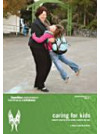This Families Commission report responds to the Minister of Social Development’s request (letter of expectation, March 2010) that the Families Commission undertake research on what parents are looking for in out-of-school services (OSS). The Minister expressed a particular interest in understanding how parents in different income groups see trade offs between cost, quality, and location, and the report examines these issues.
This report outlines the key findings and conclusions based on a literature scan and analysis of the 2009 Childcare Survey. It provides an evidence base to support the Minister’s decisions in relation to the Out-of-School Care and Recreation (OSCAR) review and wider considerations on improving childcare for low-income families and whānau.
Any consideration on what is important to parents however needs to understand who is using formal OSS services, compared to other arrangements. Less than one in 10 parents access formal OSS (before school, after school and during the school holidays) for their child. Parents mainly care for their school-aged children themselves, and receive a great deal of support from extended family and whänau (in the form of informal care arrangements) to do so. Parents have a strong preference for parental and informal care arrangements and it is not surprising that ‘trust and familiarity’ was the most common factor considered by parents when deciding on the childcare arrangements.
Yet parents appear to have few realistic childcare options. While many parents who provide informal care within the family and whanau appear to have greater flexibility in work, in the event that the situation at home or at work changes the limited childcare options available could pose a challenge. While current use of formal OSS is low and is not a preferred form of childcare, it is a necessary and critical service for sole-parent/s who work full-time, and do not have flexible working hours. Childcare difficulties have a strong influence on parents’ participation in study and training. If working parents do not have flexible working hours or access to informal care, then access to formal OSS becomes crucial for maintaining employment relationships.
Purpose
Our approach to this research was to:
- scan literature on how parents make childcare decisions
- consider the current policy context in New Zealand and reflect on what can be learned from other countries
- analyse the 2009 New Zealand Childcare Survey (Statistics New Zealand, 2010). This survey provides critical information on how New Zealand parents currently use OSS and care, the difficulties they experience with childcare and the impact on their employment and study opportunities
- commission a new parent survey (called the 2010 Parents Survey) to understand what parents think is important and the trade-offs they make when making childcare decisions.

